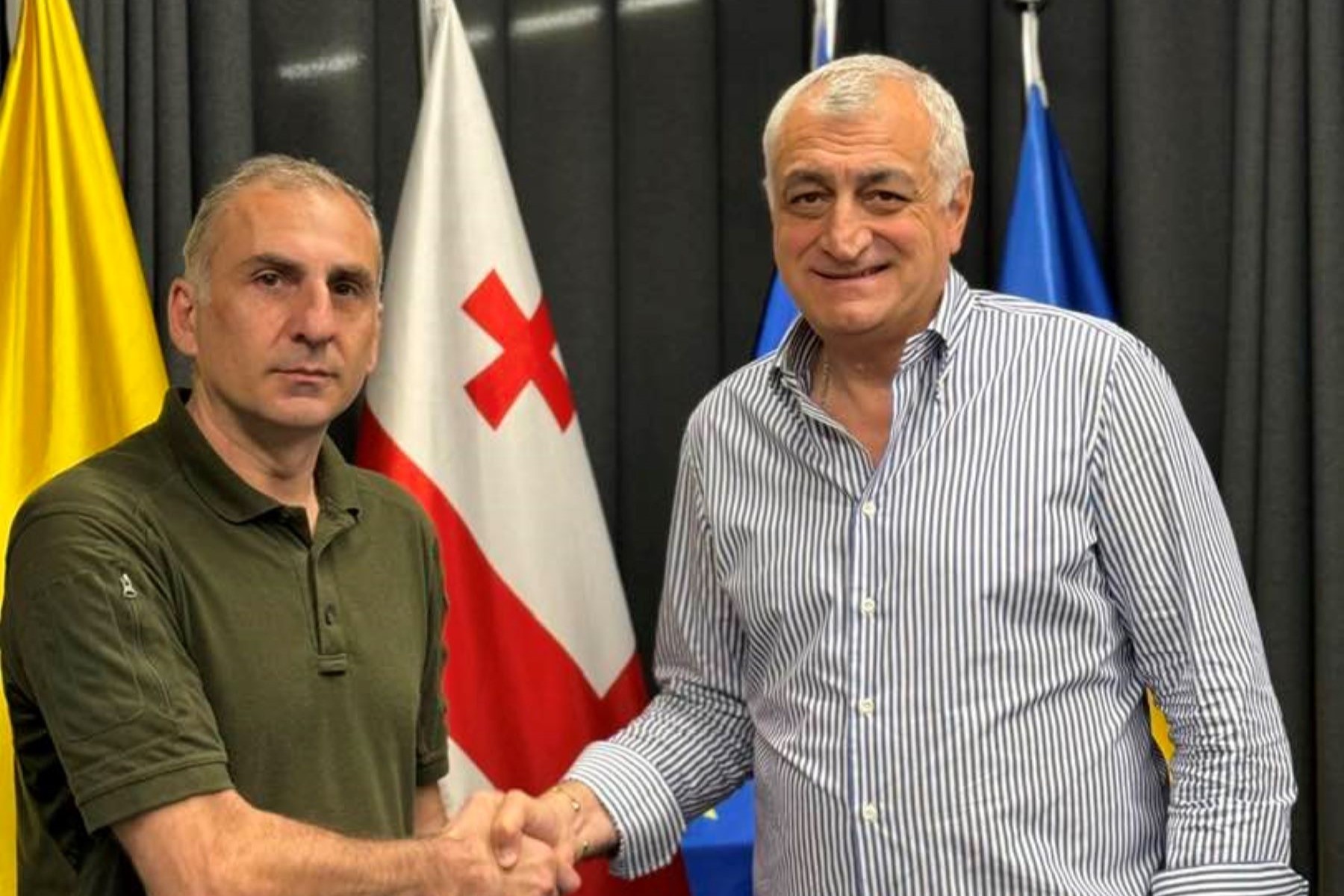Aleko Elisashvili’s Citizens Party ‘in negotiations’ with growing Georgian opposition alliance

The Georgian opposition party, Citizens, led by MP Aleko Elisashvili, is in ‘active negotiations’ to join an opposition alliance of Lelo, For the People, and Freedom Square.
A spokesperson for Citizens told OC Media that the negotiations were ‘very active’.
‘We don’t have any illusions that small parties, including Citizens, can overcome the 5% barrier on their own’.
‘We see a solution in unity and we think that enlargement is necessary for Georgia to continue its European integration and move smoothly towards Europe, and to defeat Georgian Dream through elections’.
On Tuesday Lelo party founder Mamuka Khazaradze published a photo in which he is shaking hands with Elisashvili on his Facebook page. The post was captioned ‘For a strong Georgia’, which local media reported could be set to be announced as the name of the new opposition alliance.
On Wednesday Elisashvili posted the same photo with Khazaradze writing ‘it’s time to rise above grievances, reconcile, unite and win!’ he wrote.
Earlier on Tuesday, Netgazeti reported, that Lelo had already confirmed Citizens was joining the alliance.
However, this was denied by Lelo chair Mamuka Khazaradze on Wednesday.
In the past month, a number of Georgian opposition groups have announced they will unite ahead of October’s parliamentary elections, which are widely seen as being decisive for Georgia’s internal politics as well as its foreign policy trajectory. This also includes the ‘Coalition 4 Change’, an alliance of the Ahali, Droa, and Girchi – More Freedom parties.
[Read more: Three Georgian opposition parties to unite ahead of elections]
Lelo was founded in late 2019 by TBC Bank cofounders Mamuka Khazaradze and Badri Japaridze, in the 2020 parliamentary elections. The party was launched shortly after Khazaradze and Japaridze accused the government of pressuring the Anaklia Development Consortium, which they led, into sabotaging its role in the Anaklia Deep Sea Port Project on Georgia’s Black Sea coast.
Anna Dolidze, a lawyer and longtime government critic, founded the For the People party in 2021.
Freedom Square was established earlier this month by Levan Tsutskiridze, the executive director of the Eastern European Centre for Multiparty Democracy watchdog group. Tsutskiridze was amongst those leading this year’s wave of mass protests against the foreign agent law.
Elisashvili also gained visibility during discussions of the law after punching parliamentary majority leader Mamuka Mdinaradze during a committee hearing on 15 April. Days later he was beaten by police at a protest. The MP and former journalist founded his party in 2020, winning two seats in that year’s parliamentary elections.
Lelo’s political secretary Salome Samadashvili told Palitranews that Lelo considered everyone ‘who believes that Georgia should be an independent, strong, European country’ to be their ally.
On Wednesday Prime Minister Irakli Kobakhidze described Elisashvili joining forces with Lelo as ‘not serious’, adding that ‘in any configuration, they have no chance of crossing the threshold’.
Parliamentary elections in Georgia are scheduled for 26 October. MPs will for the first time be elected fully proportionally, with mandates distributed amongst political parties that cross the 5% threshold.
CORRECTION: An earlier version of this article claimed Citizens had already agreed to unite with Lelo and other opposition parties, a claim later denied by both parties.









